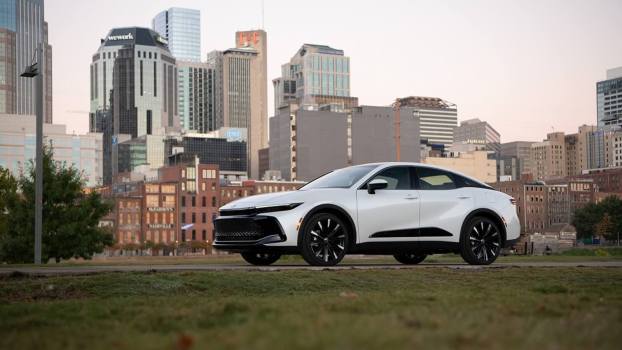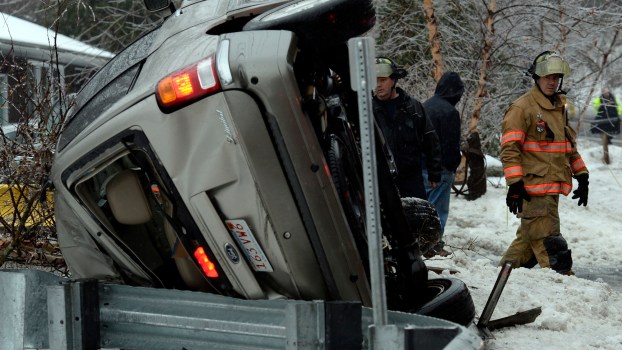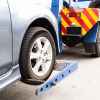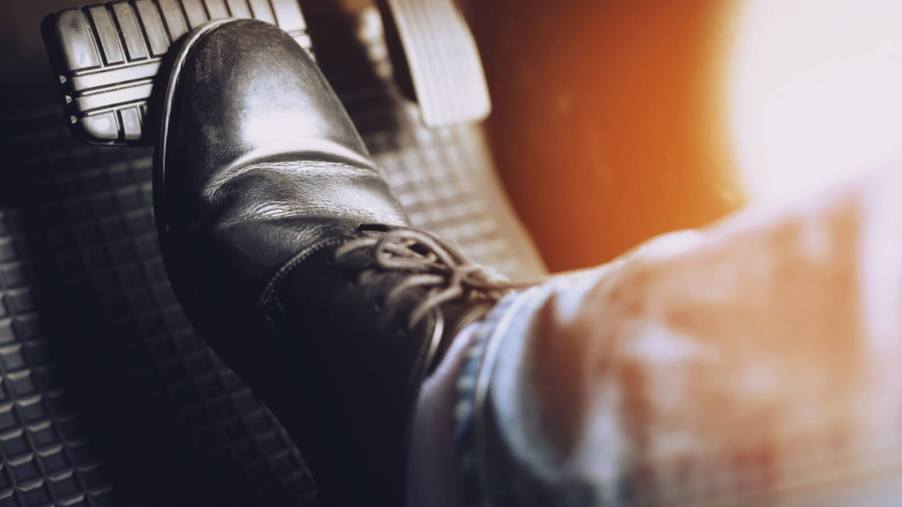
How Do You Stop a Car With Brake Failure?
It’s a nightmare for many drivers. You go to depress your brake pedal, and, well, nothing happens. Tragically, brake failure could prove fatal despite modern safety technology. So, what do you do when you ask your car to stop and it says no?
Brake failure is extremely dangerous, but there are a couple of things you can do to mitigate disaster
Like the friendly letters printed on the cover of the “Hitchhiker’s Guide to the Galaxy,” don’t panic. It’s startling to depress your brake pedal with no function. However, if you use these tips in order, you can multiply your chances of handling brake failure without grievous injury or worse.
- Try to keep your focus and don’t panic
- Keep pumping the brakes
- Attempt to engage your parking brake or emergency brake slowly and deliberately
- Shift into a lower gear to use engine braking to slow the vehicle
- Identify a safe runoff or grassy area to slow your vehicle to a stop
- Wait for your vehicle to come to a complete stop, turn it off, get out, and call the authorities
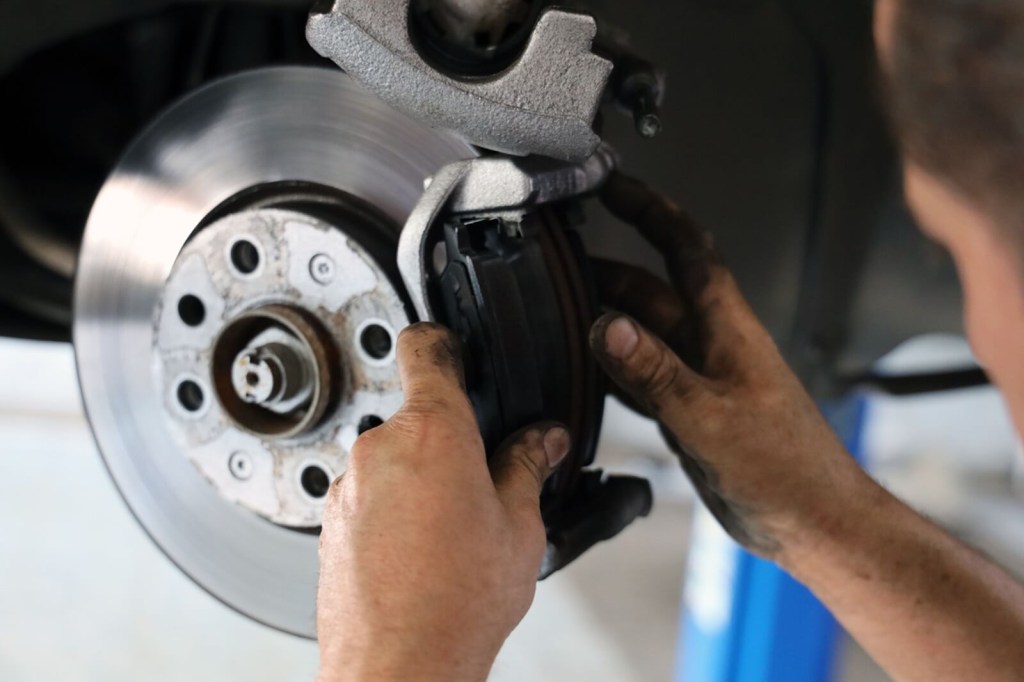
If your brakes go out in your car, you should start by remaining calm. Keep pumping your brakes; you may get enough function out of your braking system to stop the car. That, and your brake lights could warn traffic of your situation. Use your parking brake or emergency brake slowly and deliberately.
Moreover, shifting into a lower gear will allow you to use your engine’s revs to “engine brake” your moving vehicle. Should these tactics fail to stop your vehicle completely, you should identify a safe spot to get your car away from traffic. If you can drive onto a flat, open, grassy field, attempt to do so.
Admittedly, I’ve only had catastrophic brake failure once. Mind you, it was in a 57-year-old classic. Fortunately, I remained calm and stopped my old danger machine with minimal issues. However, brake failure can happen in newer cars.
According to ACE Mechanics, some of the most common causes of decreased brake performance or failure include owner neglect, damaged rotors, or loss of fluid pressure. These things can happen to newer cars just as they could to classic and antique vehicles. Your best bet is to stay on top of your vehicle’s brakes, including pads, rotors, and fluid.
